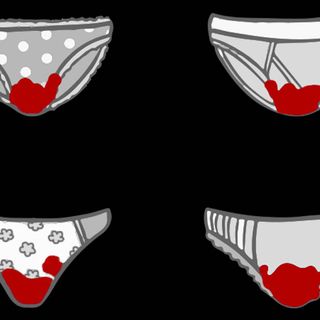
Study Confirms, Yet Again, Vaccines Do Not Cause Immune System ‘Overload’
Let’s put this myth to bed.

For many years, the medical community did not deem it necessary to re-prove the importance and efficacy of life-saving vaccines. But suddenly, as the fatal diseases of the pre-vaccine era became rarer, it became easier to believe in unfounded rumors about the dangers of the very vaccines that have all but eliminated such ravages. And so, the medical community is now confirming — yet again — that vaccines are life-saving medication that protects, not endangers, our children.
One of the many unfounded claims that has recently spread is the idea of ‘immune system overload,’ that too many vaccines in early childhood actually weaken the immune system, making children more susceptible to other diseases. And it’s been used to justify an alternative vaccine schedule — that is, stretching out immunizations over a longer period, instead of giving babies multiple vaccines at once. A new study from Kaiser Permanente, published in the Journal of the American Medical Association, hopefully puts this argument safely to bed. The study marks the first time researchers have compared the incidence of non-preventable infections in children who have been vaccinated according to the current recommended vaccination schedule against children who have not been vaccinated according to the schedule.
“Some parents are concerned that multiple vaccines in early childhood could damage their child’s immune system, making them more susceptible to future infections. This new study suggests the theory of overloading an infant’s immune system is highly unlikely,” said Jason Glanz, PhD, lead study author and senior investigator at the Kaiser Permanente Colorado Institute for Health Research. “Parents have genuine concerns about their children’s safety as related to vaccination. We hope this study shines some light on their concerns, helping parents across the nation better understand the safety and benefits of vaccinating on time.”
The study examined the levels of vaccine antigens seen in children who reported to hospitals with infections we can’t inoculate for, such as lower and upper respiratory infections, gastrointestinal infections, and other viral and bacterial infections. There was no increased risk of infection among the population of children that was vaccinated.
“This latest study found that vaccination didn’t appear to damage the immune system in a way that made kids more infection-prone. This finding will hopefully provide additional reassurance to parents about the safety of the recommended schedule,” said Matthew F. Daley, MD, a study co-author, Kaiser Permanente pediatrician, and researcher at the Institute for Health Research in Colorado. “Parents who may be hesitant to vaccinate should bring up their concerns with their pediatrician or family physician — we are eager to discuss the benefits of vaccination. Vaccines not only protect children, but others in the community who may be more vulnerable to vaccine-preventable diseases.”
In India, where the anti-vaxxer movement is starting to gain traction, due primarily to unfortunate instances of improperly administered medication, it’s particularly important to ensure that reliable information from credible sources is disseminated. There are no credible mixed messages here: children who are vaccinated according to schedule are protected from certain infectious diseases, and are at no greater risk of immune system overload and infection from other diseases.
Related:
Related


Researchers May Have Found the Cause of Heavy Periods
